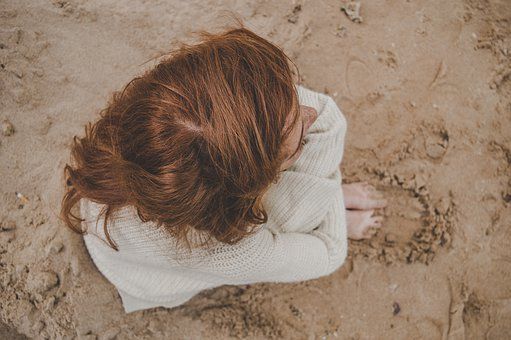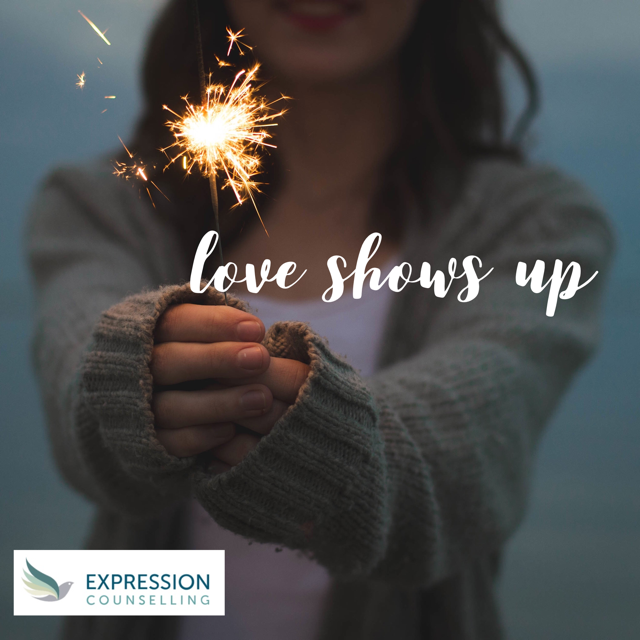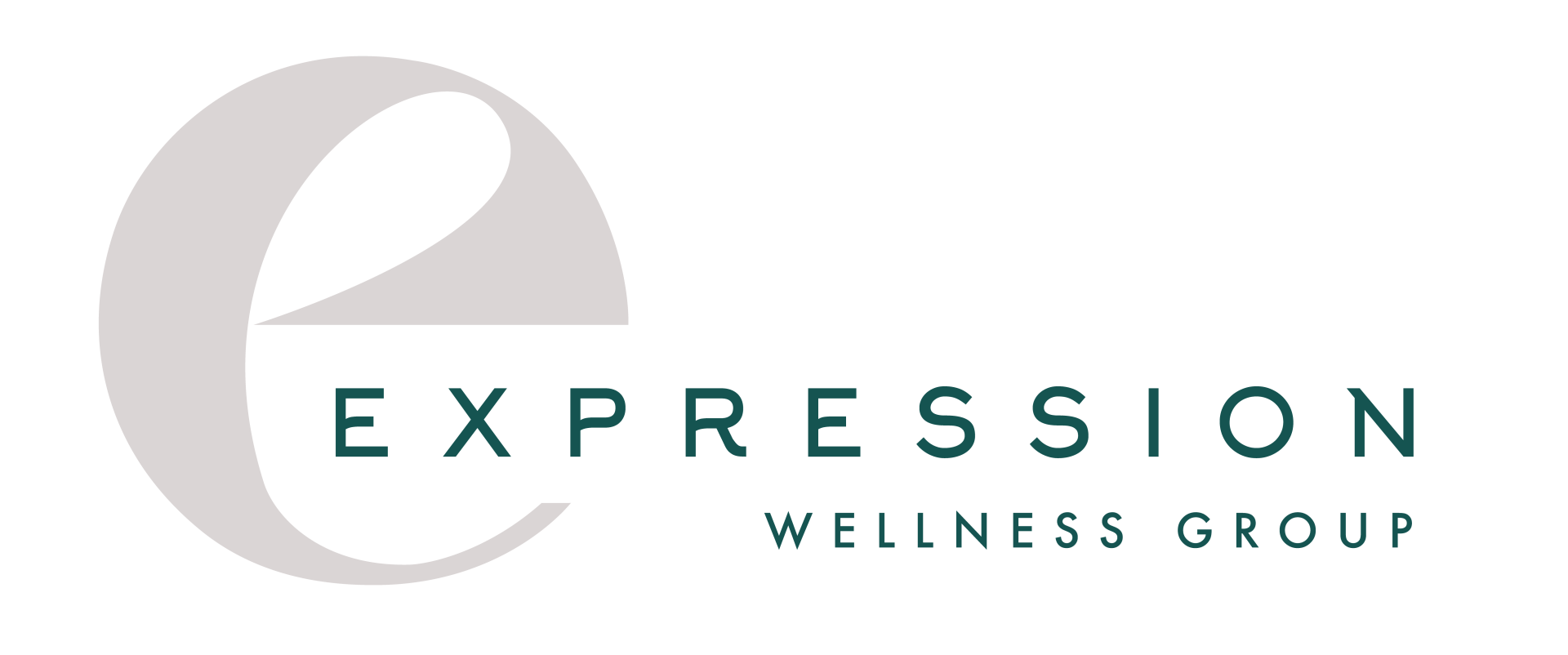Expression Counselling:Live with Intention

I often struggle with the concept of clinical diagnosis, in particular the common ones in our culture: anxiety and depression. My issue is simple: we too often take normal and valid feelings, that are part of the human experience, then medicalize them as problematic. The response then is to “get rid of” rather than be curious about what these emotions are trying to communicate to us. I have my own experience with on-again, off-again depression. When it’s at its worst, I’d certainly meet clinical criteria: a sense of hopelessness, low mood and motivation, isolation, wanting to sleep a lot but finding it evasive, lack of enjoyment for anything I have loved. You know the drill. But when we start to untangle the why, really look deeply at the list of ingredients making up this soup of depression (or anxiety or other struggles), we begin to realize that these feelings, in fact, make perfect sense. And they are trying to communicate something to us that deserves a listen. Rather than banish the depression or ignore the anxiety, we need to dig a little deeper. And your unique blend of experiences, or your soup (if you will), will help you figure out what you need to do to take care of yourself better. In my case, depression is almost ALWAYS trying to tell me I’m burnt out. It is the only part of me that will put me to bed, remove all pressure for productivity or replying to messages or emails. It wants or needs nothing from me except rest. Clients I work with might notice their depression is driven by underlying shame, or by feeling lost or stuck in their life. They might be carrying grief from losses not yet named or processed. Anxiety too- the world is a scary place right now, and we are so overly exposed to global and local traumas. Perhaps you didn’t feel safe in childhood and that fear has been carried in your body in your adult life. Perhaps you really are in an unsafe situation and your fear is trying to communicate this lack of safety to you. What I am trying to say is… A diagnosis of depression or anxiety does nothing to improve our well-being on a deeper level. We must become detectives of our own suffering. Only then can we learn to move with more self-compassion and grace, to set boundaries when needed, to let go of what we cannot control, to figure out what specialists we may need to see, to rest when we need to, to grieve the losses of our lifetime, and to feel the fears of uncertainty that we all face, every single day. This is where counselling helps. This is what we do. We help you untangle the mess, learn your ingredients, heal what needs to be healed so you can do what you need to do to feel better. Or to simply be with yourself more kindly when it hurts. Sending love, Christina

The work we get to do is such a gift, often teaching me far more about the resilience of the human spirit than I give back with my empathy and my theory. Case in point: I have been working with this strong, wise woman for several years now. She endured a trauma in her younger years that is, without any doubt, horrifically unimaginable to the majority of us folks. During session a few weeks back, we were reflecting on this younger, traumatized version of herself, and also the courageous path she has travelled to become who she is today, and she stated: “The woman I am today is the friend I needed back then.” Pause for emphasis here. “The woman I am today is the friend I needed back then.” I was hit so squarely in the chest by this statement I teared up right there in session. To fully understand why I found this statement so profound, you have to understand what often lies at the very heart of my approach to trauma work. We must return, not to the trauma, but to the younger parts of ourselves that were deeply injured, betrayed, rejected, abandoned and shamed. We have to locate those young parts in our bodies and psyches and shower them with love and with all our adult wisdoms of compassion, protection, and understanding of children’s powerlessness in the face unsafe adults . We remind these young parts how brave they were. And we let them know it wasn’t their fault. This is where the healing happens. This is where transformation happens. This is what she’s done. Our vision statement at Expression Counselling is: “Transformational love of self and others.” And this young woman is fully living this vision. Because the second reason why her statement so darn profound is that she has taken her trauma and now uses it to serve and support others. She tells her story loud and proud. She is real and vulnerable. She lets people know they aren’t alone. She sits with the broken and loves them until they can love themselves. She is the friend she needed back then. This is how we transform. Not only ourselves, but the world. I am reminded of one of my favorite quotes by Patton Oswalt: “So when you spot violence, or bigotry, or intolerance or just garden-variety misogyny, hatred or ignorance, just look it in the eye and think: The good outnumber you, and we always will.” What a gift to do what we do. As always, wishing you peace. Christina Disclaimer: This post is published with the direct consent of the above-mentioned client. Her words: “I hope it helps others too.”

Just this past May I had a tad bit of a physical and mental health collapse. Dizzy spells, severe rosacea acne, crippling exhaustion, and all the moods a person can feel. I literally woke up in my hallway after a fainting spell and said to myself: “Self. Enough. Something has got to change.” So off I trotted to the doctor and also to my naturopath and they told me all the things that are typical for women my age to hear: iron levels low, cortisol levels flatlined, issues with my digestive system, hormones way out of whack, adrenal fatigue. You know, the usual. Loaded up with vitamins, antibiotics, Kombucha and a new personal trainer, I began the slow journey back to health. Which for the record, made me feel quite a bit worse before I felt better. I think women should know this. But the real question I want to address in this post is “ HOW ? ” How does a smart, capable, intelligent, HELPING PROFESSIONAL (i.e. should know better) burn herself to the ground? I’ve got a few thoughts on this… There’s the usual stuff: I said “yes” when I should have said “no.” I skipped meals in lieu of Venti Starbucks. I’m a regular woman, juggling the relentless demands of parenthood, career, and relationships. I put myself last on the priority list. Yada yada yada… All these things are true… yet, something happened to me during a personal training session recently that highlighted a stressor I had not considered: the weight of the stories we carry when we are helpers . Now don’t get me wrong, I love people’s stories, I am so deeply honored to be invited in to these stories. I believe all of us carry stories that are meant to be shared, as they join us in our humanity. Yet they do carry weight; there’s no denying it. I wouldn’t be the therapist I am if I didn’t feel deeply the injustice, grief, and anger of people's experiences. My trainer Sarrah, who is an angel of a human, had me hitting a heavy bag as part of my workout. I’m not much of a fighter so this was new to me. During this particular pounding session, seemingly out of nowhere, I started crying. At first I was quite embarrassed, but she was having none of my shame. She stopped correcting my form and told me just to hit the darn bag as hard and as long as I needed. So I did. And out of nowhere, this rage and grief started pouring out of me, punch after punch- all the tragedy and impossibly painful stories I hear in my practice. And it wasn’t just my counselling work, it was also the news stories of shootings, and children dying and overdose crisis and all the heaviness and wrongness and unfairness of the world that I carry in my big ol’ compassionate heart. It was the people who show up in my space imploring me to “fix” situations to which there is no solution, and it was the pressure I carry around trying to be good enough for these folks, to be useful to them. And for all of my self-awareness, I literally had no idea that I was packing around that much pain and pressure. I always thought: “I’m good. I’ve got good boundaries. I’ve got a supervisor I process stuff with.” Here’s a trauma truth from Dr. Bessel Van Der Kolk: trauma lives in our bodies. If we want to take care of ourselves, talk processing is not enough. We have got to get our bodies moving. I have now been converted to the truth that there is no other way to stay healthy in the work besides getting physical. So here is my challenge to you helpers- and I mean you teachers, parents, nurses, social workers, youth care workers, best friends and spouses, and everyone else (you know who you are). As we enter back to our fall routines, I implore you to sign yourself up for a yoga class, a fitness class, HIIT class, or a running group. Anything! Just get your body moving so that you can keep on caring for your people. The world needs people like us to keep showing up. I’m happy to report I’m feeling much better these days. Big love to you all, Christina

At some point in all of our lives, we are at the centre of tragedy. We are the ones sitting in hospital rooms or police stations or funeral homes, shocked, bleary, hurting, broken, overwhelmed, numb, scared. Here’s the thing I’ve noticed though, and it brings me to my knees every time I see or hear of it: there is something quite beautiful that happens in these moments. Love shows up. I mean, like REALLY shows up. It shows up in meal trains and in text messages and in prayers. It shows up in Go Fund Me page donations and offers to watch the kids. It shows up in the space folks create for us to cry, to scream, or simply say nothing at all. It showed up in Milestone, Saskatchewan when 100 volunteers harvested a farmer’s crop after he suddenly passed away. It shows up and does exactly what needs to be done, no matter how big or how small the task. And when I say love shows up, what I mean is that YOU show up. WE show up. And that is pretty darn incredible, if you ask me. And this is how I know, despite all the ugly things we see and hear, despite our fears that all is falling apart: the world is good. People are inherently good. And life is beautiful and good. Glennon Doyle (and my dear friend, Esther) would call this Brutiful, and I couldn’t agree more.

